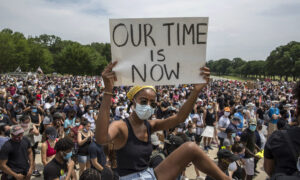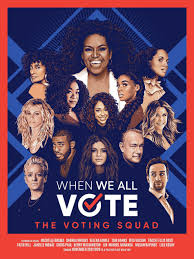
Coming out of four years of Donald Trump’s administration and months of protests and unrest regarding ongoing police brutality cases, many wonder if the Black vote will make a return this election season. In 2008, there were about 2 million more Black voters than the previous election, mainly attributed to their support of America’s first Black president, Barack Obama.
In 2012, Black people in America voted at a higher rate than any other minority group and surpassed white voter turnout as well. 2016 ushered in a record low participation by Black voters, dropping to 59.6% compared to the record high of 66.6% in the prior election.
Andra Gillespie, a political science professor, is aware of the drastic changes regarding the Black vote.
“The 2012 turnout [was] a milestone for Blacks and a huge potential turning point,” the Emory University professor said in an interview with CBS News. “What it suggests is that there [was] an ‘Obama effect’ where people were motivated to support Barack Obama. But it also means that Black turnout may not always be higher, if future races aren’t as salient.”
In other words, the statistics of both the 2008 and 2012 elections not only broke records, but showed the world the importance of the Black vote when another African-American is on the ballot. The drop in 2016 suggests that Black people only show up at the polls during what they believe is a turning point in American history. What many campaigns across the nation are trying to convey to Black voters now, is that every election is worth voting in.

When We All Vote is an organization on a mission to close the race and age voting gap by changing the culture around voting through strategic partnerships, according to its websites. Among its co-chairs are MIchelle Obama, Tom Hanks andFaith Hill. They’ve held nearly 3,000 voter registration events nationwide, have engaged with voters online, and sent out text messages, all targeted toward getting people to the polls, specifically younger people of color.
“Black people are holding those who benefit from the system that we’re accountable like never before,” Janelle Monae, Grammy nominee and When We All Vote co-chair said in an interview with Variety.
This year’s election brings in the first wave of Generation Z voters, as many were not of age as Trump entered office in 2016. Florida, a known battleground state, recently passed an amendment granting previously convicted felons their right to vote again, an amendment that had the greatest impact in counties with greater Black populations.
“I believe the dynamic of the Black vote is going to be split as we have to decide between the lesser of two evils,” Florida A&M University student Niegil Reese said.
“Some people feel as though they’re stuck because injustice it seems inevitable when it comes to who’s in the presidential office.”
Nonetheless, past statistics have shown the impact of the Black vote. The impact, however, will only reach its full potential when Black voters realize that for themselves.